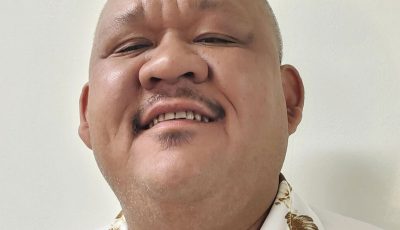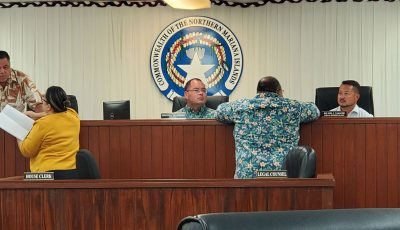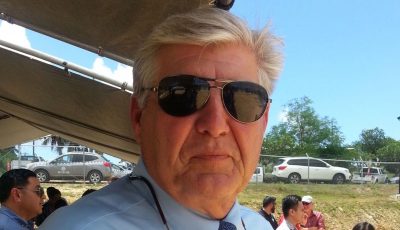Filling the House vacancy
In a Saipan Tribune story titled “It’s open season,” it was “reported,” in extensive speculative detail, that there will be a special election to fill the “vacancy” created by the death of Rep. Frank Dela Cruz, may he rest in peace.
I would call this story irresponsible but for the final paragraph, which reads, “Chief solicitor Charles E. Brasington told Saipan Tribune on Tuesday that the CNMI Constitution and statutes are straightforward about the issue whether a special election will be held or not.”
This is an absolutely mind-boggling statement by Mr. Brasington. There is, in fact, absolutely nothing in the CNMI Constitution or statutes directly addressing the question of what happens when a member-elect of the Legislature dies before being sworn in.
Mr. Brasington makes the unsupported assumption that the death of Rep. Dela Cruz (representative-elect for the 21st House) created a “vacancy” to be filled pursuant to Section 9 of Article II of the Commonwealth Constitution. If this were true, his statement would be correct. The CNMI Constitution and statutes are “straightforward” on the issue of what happens when there is a vacancy.
I contend, however, that there is not at this time any vacancy on account of the simple truth that the 21st House of Representatives does not yet exist and will not exist until it organizes itself on Monday pursuant to Section 14 of Article II of the Commonwealth Constitution.
To be precise, there is no vacancy except in the 20th Legislature which, if it has not already adjourned sine die, in any case expires on Monday. If that vacancy were in question, Article II, section 9 clearly states it would be filled by appointment.
Thus, Mr. Brasington is not only wrong, but he is presuming to usurp the authority of the 21st House of Representatives. This is because Article II, Section 14(a) of the Commonwealth Constitution plainly states, “Each house of the legislature shall be the final judge of the election and qualification of its members…”
On Nov. 13, 2018, the voters of Precinct 3 spoke with their ballots and let their views be known on who should represent them in the 21st House of Representatives. Rep. Dela Cruz was the fifth highest vote getter and was declared a winner by the Commonwealth Election Commission performing its ministerial duty under the Election Law. Rep. Donald Barcinas was the seventh highest vote-getter. With the passing of Rep. Dela Cruz, Rep. Barcinas has the sixth highest vote among living candidates for Precinct 3 as we approach the organizational session of the 21st Legislature.
The only guidance to be found in the election law is 1 CMC § 6524(c), which states in relevant part: “In the case of any office where more than one candidate is to be elected, the candidates receiving the highest number of votes, from greatest to least, shall be declared the winning candidates.”
Only a living candidate can assume office. Applying the principle of 1 CMC § 6524(c) to the remaining living candidates requires that Rep. Donald Barcinas be presumptively considered entitled to a Precinct 3 House seat in the 21st Legislature. Importantly, there is no good reason to refuse to so, and respect for both the rule of law and the voice of the people demands that he be so recognized.
Rep. Donald Barcinas has a legitimate claim to a seat in the 21st Commonwealth House of Representatives, and only the 21st House, in its organizational session, can judge his election and qualifications and decide whether or not to seat him. That is the bottom line.
It is further to be noted that this kind of issue has already been addressed in 1990 by the Commonwealth Supreme Court in Mafnas v. Inos, 1 N.M.I. 101 (1990). Although not directly on point, there is much in Mafnas v. Inos that is instructive in answering the present question.
And Mafnas v. Inos is not the only case pertinent to the question at hand. “Under the Constitution only the Legislature has the power to seat its members, and only if the Legislature delegates some or all of its power to the courts do we obtain the jurisdiction to determine contested legislative elections.” Manglona v. Benavente, 829 F.2d 899 (9th Cir. 1987).
In my view, there is no conceivable legitimate justification for the members-elect of the 21st House of Representatives to disregard the expressed views of the voters of Precinct 3 and refuse to seat Rep. Barcinas and instead deny him (and those who voted for him) the seat by declaring a vacancy and paving the way for a special election in which it would be, in the apt title of the Saipan Tribune, “open season” and a free-for-all for any resident of Precinct 3 to try to grab the seat away from him. It also would be a grotesque waste of taxpayers’ money.
Additionally, it is premature to be talking about a special election when the legal basis to conduct one is yet to be established. Pursuant to 1 CMC § 6502(a), special elections to fill vacancies take place only upon the call of the governor. The governor so far has not called one (or attempted to call one). And since there is at this time no vacancy to fill, the governor is presently powerless to call a special election, no matter what he thinks would be desirable to try to keep Rep. Donald Barcinas out of the 21st House.
Assistant attorneys general and reporters should be more careful about the potential for confusing and misleading the public.
Stephen C. Woodruff
Senate legal counsel in the 9th,
10th,11th, and 12th Legislatures



























